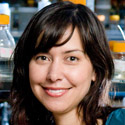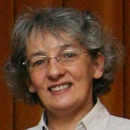Advisory Board and Editors Molecular Biology

Alison J Sinclair
BSc in Biochemistry from UCL London UK; PhD Cancer Virology at the Imperial Cancer Research Fund, London UK; post-doctoral fellowship at the European Molecular Biology Laboratory in Heidelberg, Germany, researching transcription; post-doctoral fellowship and assistant member of staff at the Ludwig Institute for Cancer Research in London, investigating a transcription factor network in Epstein-Barr virus and cell cycle regulation. Faculty School of Life Sciences at the University of Sussex, UK.

Amit Singh
Dr. Singh received his B.Sc. from the Government Degree College Nahan, H.P. University, India and his M.Sc. and Ph.D from Devi Ahilya University, Indore, India. After a short stint as a Research Associate in the field of Trangenics of silkworm, Bombyx mori, in Indian Institute of Sciences (IISc.), Bangalore, India, Dr. Singh moved to Academic Sinica Taiwan to pursue post doctoral research in the field of eye development using Drosophila melanogaster model system. In 2002, Dr. Singh moved to Baylor College of Medicine, Houston, Texas to further pursue his work on Drosophila eye development and was promoted to an instructor (non-tenure track faculty) position in 2004. Dr. Singh was hired at University of Dayton as a tenure track assistant professor in 2007 and promoted to associate professor in 2013. To date, he has published one book and 52 papers.

Rajesh Kumar Singh
Dr. Rajesh Kumar Singh received his BPharm (2003) and MPharm (2005) from UIPS, Panjab University, Chandigarh. He started to teach pharmaceutical chemistry at the Shivalik College of Pharmacy, Nangal, in 2006, where he completed his PhD in 2013 from IKG Punjab Technical University (IKGPTU), Jalandhar. His major areas of research interest are computer-aided drug-design, polymer-drug conjugates for targeted delivery to CNS and cancerous cells, antimalarial therapeutic agents, and green chemistry approaches for chemical synthesis. Dr. Singh has over 15 years of teaching experience and has guided one 03 Ph.D. and 20 PG students. He is currently guiding 02 PhDs and 02 MPharm students. He has published more than 70 peer-reviewed SCI/SCOPUS-indexed scientific papers with a total JCR Impact Factor of more than 200 in various chemistry and pharmacy journals such as European Journal of Medicinal Chemistry, Acta Pharmaceutica Sinica-B, Bioorganic Chemistry, Biomedicine and Pharmacotherapy, Pharmaceutical Research, European Journal of Pharmaceutical Sciences, Mini-Reviews in Medicinal Chemistry, Pharmaceutical Research, Med. Chem. Res., J. Enzyme Inhi. Med Chem., Res. Chem. Intermediate etc as main or corresponding author. He currently serves as an Editorial Advisory Board Member of 10 international journals, including the SCI-indexed MRMC (Bentham) and PeerJ. He has received the Publon Award 2016, 2017 and the Publon "Excellent Peer Reviewer Award" for outstanding reviewing of more than 290 research papers in different international journals of ACS, RSC, Springer, Elsevier, Dove, Informa, and Bentham whose Impact Factor varies from 1.0 to 12.5. He also has over 60 National and International Conference Abstracts, 5 Books, 5 Best Paper Presentation Awards, 1 Travel Grant to attend International Conferences, and 5 Research Projects funded by Indian Government Agencies. He is also on the panel of international reviewers for research proposals for Royal Society Grants. He is also serving as a PUBLON ACADEMY MENTOR and a BENTHAM BRAND AMBASSADOR. He has been recognized by the Editors as an OUTSTANDING REVIEWER for RSC Medicinal Chemistry journal (IF 4.1, Q1) and also for BENTHAM PUBLISHER in 2023. His name is recently featured in the list of top 2% scientists (2023) ranked by team of Stanford University, USA and Elsevier.

Nikolajs Sjakste
Experience
1978 -1987; Researcher in the Cancer Cell Chemistry Laboratory, Institute of Experimental and Clinical Medicine, Riga, Latvia.
Professor of Medical Biochemistry and Medical Genetics, University of Latvia, Faculty of Medicine (since 1998). Address: Jelgavas Street 1, Riga LV1004 Latvia. Chief of the Department of Medical Biochemistry (2011).
Leading researcher (since 2011) and Head of the Biochemistry Group, Department of Medicinal Chemistry, Latvian Institute of Organic Synthesis (since 1990).
1995 and 1997 “Red position” of CNRS 1993-1998; Institut Jacques Monod, Université Paris VII, Laboratoire de Biochimie de Différentiation, Paris, France.
Education:
Degree of Doctor of Biological Sciences (Dr. habil.), 1992, Institute of Experimental Medicine, St.-Petersburg, Russia. Degree of Candidate of Biological Sciences (Ph. D.), 1984, Cancer Research Centre, Moscow, Russia. Diploma with Distinction in Medical Biophysics, graduated from the Medico-Biological faculty of the 2nd Moscow Medical Institute, Moscow, Russia, 1978.

Nikolai Slavov
I received my undergraduate education from the Massachusetts Institute of Technology (MIT) in 2004. Then, I pursued doctoral research in the Botstein laboratory at Princeton University, aiming to understand how cells coordinate their growth, gene expression, and metabolism. We discovered a simple mechanism that can account for the growth-rate dependent transcriptional responses across a wide range of growth conditions and growth rates. After defending my dissertation in 2010, I began a postdoctoral project in the van Oudenaarden laboratory at MIT, aiming to understand the Warburg effect, a hallmark of cancer cells characterized by the fermentation of glucose in the presence of enough oxygen to support respiration. This work demonstrated that aerobic glycolysis can reduce the energy demands associated with respiratory metabolism and stress survival and that, contrary to expectations and decades-long assumptions, exponential growth at a constant rate can represent not a single metabolic/physiological state but a continuum of changing states characterized by different metabolic fluxes. Following a lead from these experiments, we obtained direct evidence for differential stoichiometry among core ribosomal proteins in unperturbed wild-type cells. Our findings support the existence of ribosomes with distinct protein composition and physiological function that represent an explored layer of regulating gene expression.

Christina D. Smolke
Christina Smolke is an Associate Professor of Bioengineering at Stanford University.

Paula Soares
Professor of Biopathology at Medical Faculty of the University of Porto and coordinator of Cancer Signaling and Metabolism research group at IPATIMUP/I3S.

Adriano Sofo
Adriano Sofo graduated with a Master Degree in Biological Sciences from the University of Bari, Italy, in 1997. He spent three years (1999-2002) at the University of Basilicata, Italy, with a Doctorate in Crop Productivity. From 2000 to 2001, he also was Researcher at the National Agency for New Technologies, Energy and Sustainable Economic Development (ENEA), Italy. As Postdoctoral Training, in 2002, he worked at the Institute of Molecular Biology and Biotechnology, Heraklion, Greece, within a Marie Curie Fellowship. In 2007, he graduated with a second Master Degree in Plant Biotechnology from the University of Basilicata. He then trained for four years as a Postdoctoral Fellow at the University of Basilicata, where he also worked as Assistant Professor in Agricultural Chemistry. In 2015, he was awarded with a Fulbright Research Scholar grant to spend at the University of California, Davis. In 2017, he received a fellowship award from the OECD's Co-operative Research Programme at the University of Waikato, New Zealand.
Dorothee Staiger
1978-1984 Study of Biochemistry at Tuebingen University and LMU Munich
1981 Short term visit Dept. of Biochemistry, University of Cambridge
1984-1985 Max-Planck-Institute for Biochemistry, Martinsried, Diploma
1985-1989 Max-Planck-Institute for Plant Breeding, Cologne, PhD with J. Schell
1990-1996 Institute for Plant Science, ETH Zurich, Assistentin
1996-2002 Institute for Plant Science, ETH Zürich, Oberassistentin
2002 Full Professor Bielefeld University

Mitchell S Stark
For the past 20 years I have been actively working in the field of melanoma and naevi genomics. I have worked and performed my PhD candidature based at the QIMR Berghofer Medical Research Institute (1999-2015) and in 2015 I relocated as a Research Fellow in the Dermatology Research Centre, The University of Queensland Diamantina Institute. Over this time I have been working towards understanding the aetiology of melanoma, studying gene dysregulation during tumour progression along with predisposition to melanoma in families with high risk for melanoma development. My research group (genomics and miRNA biomarker discovery) based within the Dermatology Research Centre (UQDI) is currently engaged in miRNA biomarker and genomics research for early detection in melanoma, skin cancer (SCC), as well as non-small cell lung cancer.

Lesley A Stark
Lesley Stark received a B.Sc (1st) from the University of Aberdeen (1990). She carried out her PhD with C. Bird at the University of Edinburgh and her first postdoc with RT Hay at the University of St Andrews. She moved back to the University of Edinburgh in 1997 to the lab of MG Dunlop. In 2002 was awarded a CRF fellowship to investigate NF-kB and aspirin chemoprevention. She was appointed as a lecturer/PI at the University of Edinburgh in 2005, a senior lecturer in 2008 then a reader in 2012.

Robert G Steen
Director of the Biopolymers NextGen Sequencing Facility, Department of Genetics, Harvard Medical School.

